HALF PRICE SALE + A FREE BOOK
THIS SALE IS GOOD FOR FIVE DAYS ONLY.
EXPIRES on SATURDAY OCTOBER 5th 2013.
BUY EITHER (OR BOTH) AT HALF PRICE
Earth: A User’s Manuel Richard B. Alley (Norton) $27.95 // sale price $13.99
Green Revolution: Coming Together to Care for Creation Ben Lowe (IVP) $15.00// sale price $7.50
AND GET A FREE HARDBACK BOO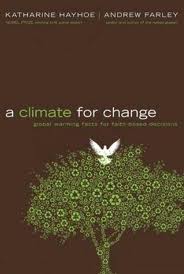 K
K
A Climate for Change: Global Warming Facts and Faith-Based Decisions Katharine Hayhoe (FaithWords) Usually $19.99 in hardback — absolutely free. Excellent!
While supplies last.
All other books mentioned are offered at the BookNotes discount of 20% off.
THE GREEN BOAT
Near the beginning of the exceptional, and very moving, gentle book The Green Boat: Reviving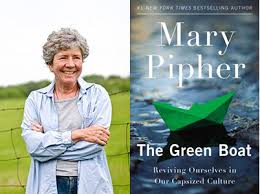 Ourselves in Our Capsized Culture by Kansas psychologist Mary Pipher (Riverhead; $16.00) she tells of attending a lecture on global warming. It was during a season of great anxiety and exhaustion and fear and stress for her — and most of us in this changing world were we are increasingly isolated and dislocated from traditions and ways of life that might enhance social cohesion and build hope as we face climate change and other seemingly intractable problems. The informative lecture, though, was so gloomy and the world famous presenter so dour and hopeless that she and her husband felt even more immobilized and distressed.
Ourselves in Our Capsized Culture by Kansas psychologist Mary Pipher (Riverhead; $16.00) she tells of attending a lecture on global warming. It was during a season of great anxiety and exhaustion and fear and stress for her — and most of us in this changing world were we are increasingly isolated and dislocated from traditions and ways of life that might enhance social cohesion and build hope as we face climate change and other seemingly intractable problems. The informative lecture, though, was so gloomy and the world famous presenter so dour and hopeless that she and her husband felt even more immobilized and distressed.
This experience of feeling helpless motivated her to ponder the denial and confusion we experience about our huge global problems. She beautifully and humanely writes about what many of us feel. “We experience our own grief,” she writes, “but also the pain of the earth and of people suffering all over the world.”
She explores her observation of a process we go through, a cycle from trauma (her friend says many of us have “mid-traumatic stress syndrome”) to denial to awareness and action which can lead to what she calls resilient coping. In an earlier book she wrote about not being a very good Buddhist (she was raised Methodist) but she does end the book with some wise pointers towards a deepening sense of transcendence as we work together with friends and neighbors to resist the pressures of the modern age, working to made a difference. Even as she works for environmental justice, she tells of “savoring the world we’ve got” and her own beautiful writing attests to her love of her own beautiful back yard.
We have greatly appreciated Mary Pipher’s work (and loved selling books for her once years ago at our local hospital where she impressed us thoroughly.) She has written eloquently about the changing emotional terrain of the aging (Another Country), about resettling refugees (The Middle of Everywhere), about writing (Writing to Change the World), on how to be a good counselor (Letters to a Young Therapist), not to mention her world-famous book about teen girls (Reviving Ophelia) and the wonderful Shelter of Each Other about rebuilding our families and our social fabric. Her new Green Boat book is no different — she is a clear and caring writer, humane and decent, reflecting well on her small-town, mid-Western populism, even as she offers profound insight about some of the most important matters of our time. Nature writer turned anti-global warming activist Bill McKibben — himself an old-school Methodist — writes that Piper “knows why we avoid and deny the truth and she knows how we can heal ourselves and our communities even as we try to heal the earth. This book is a deep and true gift.”
It has been a gift to me. The Green Boat served me as did a book by Joanna Macy decades ago as I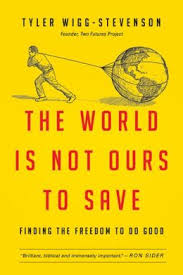 struggled with finding balance and hope and emotional stability amidst a campaign to alert the nation about the dangers of nuclear weapons. How can one study and speak and work and live with such apocalyptic horror without being drained by psychic numbing or the drift into jaded cynicism? She reminds us that “action is an antidote to despair” and hints at spiritual resources to sustain us. Although written differently, and to a different audience, it arises from the same need as the excellent and immensely gratifying The World Is Not Ours To Save: Finding the Freedom to Do Good by evangelically-minded anti-nuclear activist Tyler Wigg-Stevenson (IVP; $16.00.)
struggled with finding balance and hope and emotional stability amidst a campaign to alert the nation about the dangers of nuclear weapons. How can one study and speak and work and live with such apocalyptic horror without being drained by psychic numbing or the drift into jaded cynicism? She reminds us that “action is an antidote to despair” and hints at spiritual resources to sustain us. Although written differently, and to a different audience, it arises from the same need as the excellent and immensely gratifying The World Is Not Ours To Save: Finding the Freedom to Do Good by evangelically-minded anti-nuclear activist Tyler Wigg-Stevenson (IVP; $16.00.)
(In the second strong half of The Green Boat, by the way, Ms Pipher — a clinical psychologist but also wife and caring grandmother — tells of joining with her neighbors and friends throughout Kansas to resist the planned XL Pipeline, forming a coalition to prevent its dangerous intrusion in their state and protesting our culture’s over-dependency on fossil fuels.) It is always inspiring to read stories of exemplary citizen action and agree or not with her campaign, the telling of this tale of the renewal of grass roots democratic action is a blessed tonic. I really, really recommend this lovely, wise book which helps us reflect on our inner lives as we care about the world around us.)
DR. RICHARD B. ALLEY
W ell, for the record, the climate change expert mentioned in the new Mary Pipher book was clearly not Richard B. Alley, climatologist and Professor of Geoscience at Penn State University. I heard Dr. Allen at the Faith for Thought conference yesterday, an almost annual conference organized by faculty and the campus ministry team of Calvary Baptist church, this year hosted at Grace Lutheran (ELCA) in State College. And, man, was he a hoot. His most recent book, Earth: The Operators’ Manual (Norton; $27.95) is the companion volume to the PBS documentary and it is wide-ranging, upbeat, and fantastic.
ell, for the record, the climate change expert mentioned in the new Mary Pipher book was clearly not Richard B. Alley, climatologist and Professor of Geoscience at Penn State University. I heard Dr. Allen at the Faith for Thought conference yesterday, an almost annual conference organized by faculty and the campus ministry team of Calvary Baptist church, this year hosted at Grace Lutheran (ELCA) in State College. And, man, was he a hoot. His most recent book, Earth: The Operators’ Manual (Norton; $27.95) is the companion volume to the PBS documentary and it is wide-ranging, upbeat, and fantastic.
Space does not permit a full explanation of Richard Alley’s prestige and credentials — the dude has a glacier named after him and he helped the United Nations Intergovernmental Panel on Climate Change (IPCC) win the Nobel Peace Prize, for crying out loud. He has worked for oil companies, self-identifies as one whose political inclinations tilt right, has hiked and camped recreationally all over the world (with his beloved family of wife and two daughters), is a huge fan of Abraham Lincoln (who helped start the US Academy of Science, wanting the government to be informed by good science, and who held several patents for his own inventions. Lincoln was the only US President to have patents and Allen, who is a cheerleader for engineers and inventors, digs that.) Dr. Alley is a truly fascinating fellow and very cool guy. And way smarter than your average guy.
Dr. Alley was trained in geology and is in the top tier of researchers in the world in the science of climate change. His passionate talk at Grace Lutheran was peppered with slides of his research facilities in Greenland and in Antarctica (my goodness, those penguins are cute!) His philosophy of science which comes through in the book is reasonable, down-to-earth, pragmatic, and humble. He is not an ideologue. His Christian faith is also humble and succinct: his church still teaches the Golden Rule, he said, which was an evident motivation for much of his work. (The book ends with significant proposals for solving our energy crisis, mostly for the sake of the poor and starving and the growing populations, a theme which also came out in his talk at Faith for Thought.)
climate change. His passionate talk at Grace Lutheran was peppered with slides of his research facilities in Greenland and in Antarctica (my goodness, those penguins are cute!) His philosophy of science which comes through in the book is reasonable, down-to-earth, pragmatic, and humble. He is not an ideologue. His Christian faith is also humble and succinct: his church still teaches the Golden Rule, he said, which was an evident motivation for much of his work. (The book ends with significant proposals for solving our energy crisis, mostly for the sake of the poor and starving and the growing populations, a theme which also came out in his talk at Faith for Thought.)
The lecture giving the scientific data about the dangers of global warming which Mary Pipher described in The Green Boat left her feeling guilty, dis-empowered and unmotivated. By contrast, Allen’s enthusiastic and entertaining presentation at Faith for Thought was motivating, stimulating, and drove me to revisit his hefty book. I had mentioned it here at BookNotes when it first came out and what I said then I now affirm, even more so: Earth: The Operators’ Manual is a great blend of heavy science and upbeat anecdote. His travels around the globe, his narration of how they do experiments, his fabulously interesting bits of history and relevant episodes keep the book moving, keep even the untrained reader interested. I don’t know anything about CO2 levels or how they measure ancient ice or what the charts about changes in ocean temperature mean. Or at last I didn’t until I read this wildly informative masterpiece.
Alley is reluctant to give grandiose policy proposals. He is a scientist and excellent teacher, not an activist or politico. (He none the less gets hate mail, seriously ugly emails that are ignorant and tragic.) Yet, he ends Earth with some general suggestions.
In the last chapter he writes,
If I were to stop right there, I would be happier, but my high school writing teachers would probably not be happy. This is the point where, in a proper narrative, I would reveal the grand conclusion, point the path to the future, and lead the grand and glorious charge to a brighter tomorrow.
Fat chance.
My impression is that when we scientists try to recommend policy, we have no more insight than anyone else. Asking me what to do runs the risk that someone might believe me because I have expertise in limited, somewhat-related areas. I am a geologist-turned-glaciologist-and-climatologist who took a lot of classes about Earth and enough physics and chemistry and biology and metallurgical engineering to support my interest in the planet, who has roamed the planet reading the history of climate written in ice and trying to understand the ice well enough to learn what it does to landscapes and sea levels. Having me choose between cap-and-trade or taxes or business as usual, or nuclear or wind or sun or sequestration or geo-engineering, is akin to having a U.S. Senator use a universal stage to measure the c-axis fabric of a polar ice core — you are better off getting a real expert than you are pretending that someone else can do the job.
Yet, I do have some insights that may be valuable, and I am sensitive enough to the instructions of my high school teachers that I feel I owe you a little more insight on a few of the issues. If someone put a gun to my head and forced me to make recommendations, they would grow out of the following points.
Ya gotta love a world class scientist and clever guy like that. There may be a teensy bit of false reluctance there, but he is humble and generous and down-to-Earth. He does know his stuff, so he is right: we should listen to his practical points. Anybody who wants to contribute to the conversations about climate change in the urgent upcoming years, should read this book. With experts and leaders like this, we may not respond with despair and sorrow as Mary Pipher did as she entered this conversation. Alley is no Pollyanna, but he does seem to be a man of good humor and of good hope.
Earth: The Operators’ Manual is not an overtly religious book; as a PBS-related title it is rich in social history and good science and is inspiring in a humanistic way. But think about it: the very idea that there is an “operators’ manual” — that there is truth to be learned and that there is a prudent way to go — this is stuff that leads not to despair but to wisdom and hope. Good scientists who are also upbeat, passionate teachers and reliable, entertaining writers like Alley can help us.
LISA SHARON HARPER
Two other plenary speakers at Faith for Thought — besides the other great breakout sessions — were Lisa Sharon Harper and Ben Lowe. Lisa, who used to work for InterVarsity Christian Fellowship and helped found NY Faith & Justice, and now works at Sojourners, is a good friend and a great speaker. She talked about the shalom God created as described in Genesis, and moved us through a
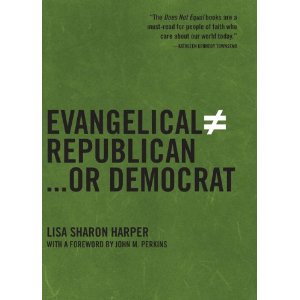 realization of the way our sin and rebellion has caused brokenness — that things are now “not the way it is supposed to be.” Lisa’s first amazing book is called Evangelical Does Not Equal Republican… or Democrat (New Press; $24.95) and the accolades she has gotten (especially in a spectacular forward by John Perkins) indicated that she was a writer who deserved our full attention. Ms Harper’s second was co-authored with World magazine writer, the conservative D.C. Innes, Left, Right and Christ: Evangelical Faith in Politics (Russell Media; $24.95.) This back-and-forth dialogue book is a splendid way to think through various issues of social policy, and a great study resource for groups who may not all agree on whether it is most faithful to tilt to the right or the left. Her call to embody God’s story, to be people of hope, was a great way to start the conference.
realization of the way our sin and rebellion has caused brokenness — that things are now “not the way it is supposed to be.” Lisa’s first amazing book is called Evangelical Does Not Equal Republican… or Democrat (New Press; $24.95) and the accolades she has gotten (especially in a spectacular forward by John Perkins) indicated that she was a writer who deserved our full attention. Ms Harper’s second was co-authored with World magazine writer, the conservative D.C. Innes, Left, Right and Christ: Evangelical Faith in Politics (Russell Media; $24.95.) This back-and-forth dialogue book is a splendid way to think through various issues of social policy, and a great study resource for groups who may not all agree on whether it is most faithful to tilt to the right or the left. Her call to embody God’s story, to be people of hope, was a great way to start the conference.
(In many ways, these two books are foundational to the more general project of Christian perspectives on social action for the common good which then informs faith-based environmental concern. They are both very, very good, but not exclusively about creation-care.)
BEN LOWE
T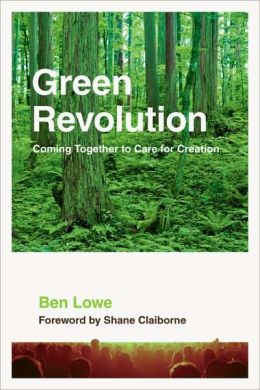 he closing talk was by another good, good guy, a friend (who has been to Jubilee more than once) Wheaton College grad and recent founder of the Young Evangelicals Climate Action, Mr. Ben Lowe. I have recently re-read most of his fabulous book Green Revolution: Coming Together to Care for Creation (IVP; $15.00) and again am convinced that it is one of the finest books on the topic. It is handsomely designed, relatively inexpensive, and loaded with great content, solid theology, helpful Bible references, very insightful advise about deepening one’s resolve and action, and tons of great, great stories.
he closing talk was by another good, good guy, a friend (who has been to Jubilee more than once) Wheaton College grad and recent founder of the Young Evangelicals Climate Action, Mr. Ben Lowe. I have recently re-read most of his fabulous book Green Revolution: Coming Together to Care for Creation (IVP; $15.00) and again am convinced that it is one of the finest books on the topic. It is handsomely designed, relatively inexpensive, and loaded with great content, solid theology, helpful Bible references, very insightful advise about deepening one’s resolve and action, and tons of great, great stories.
Many of the sidebars and interludes are written by staff or students at various colleges, showing how evangelical students and institutions are taking the lead in working for environmental stewardship. From Calvin College’s Plaster Creek restoration project to Messiah College’s Earthkeepers to descriptions of Peter Harris and the founding of A Rocha to a glimpse into “Christians for the Mountains” who are righting mountaintop removal, these testimonials offer great, great glimpses of what can be done, of what this “revolution” looks like, inspiring readers to be more involved. I love this book and can’t say enough about it — why don’t you get one for your church library, or to pass on to somebody who might care.
If you work in college ministry or have young adult groups in your church (as some of the BookNotes readers do) please know that this book is a fabulous one to use with young adults. Very highly recommended. Buy ’em during the half price sale, this week only!
Kudos to Pennsylvania Interfaith Power and Light, GreenFaith, Evangelical Environmental Network, and other good groups who helped out, sharing information on everything from sustainable agricultural, divestment discussion, theological matters, and other important aspects of this movement. As you may guess, we had tables and tables worth of many books on the calling to be thoughtful, developing a Christian mind to various sub topics — science, food and eating, farming and land us, to more general things on Christian discipleship, reading Scripture, and of course resources for spiritual formation. As always, we love selling books at events like this and invite you all to stay in touch. Thanks to those who read books, who buy books. Without you, we’d have no ministry here.
OFFER
50% OFF
Earth: The Operator’s Manuel (Allen)
Green Revolution (Lowe)
while supplies last
+
FREE BOOK
A Climate for Change
while supplies last
– Offer good through Saturday October 5, 2013 –
(after that, 20% discount on all items mentioned)
takes you to the secure Hearts & Minds order form page
just tell us what you want
inquire here
if you have questions or need more information
just ask us what you want to know
Hearts & Minds 234 East Main Street Dallastown, PA 17313 717-246-3333

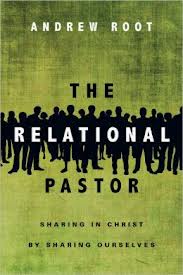
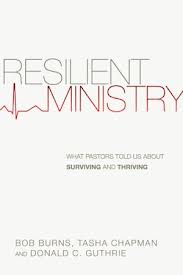
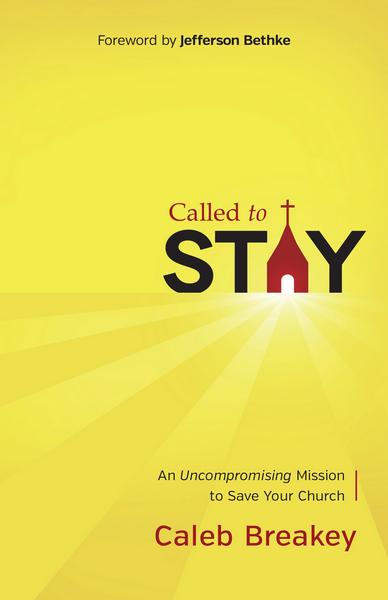
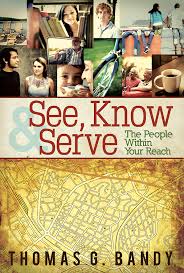
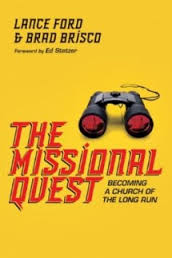
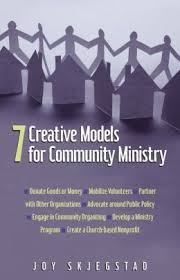
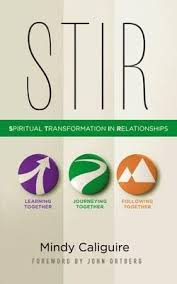
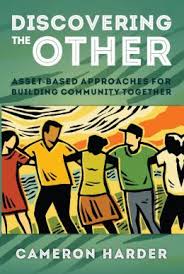
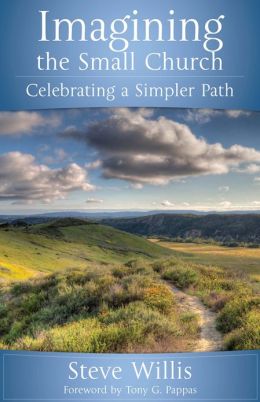
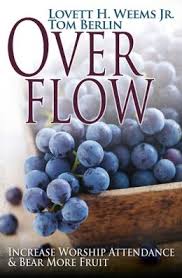
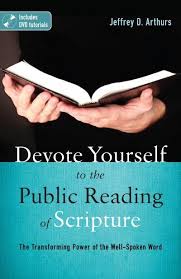
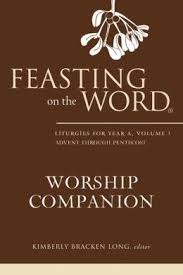
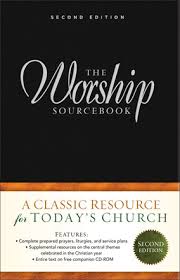
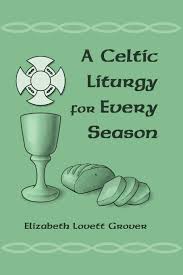
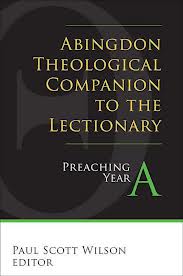
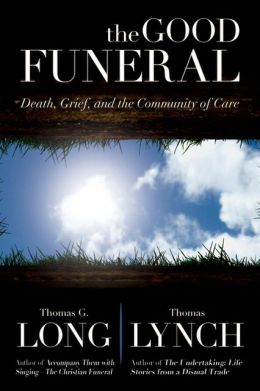
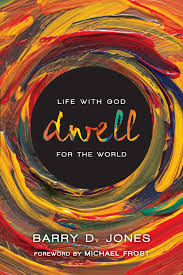
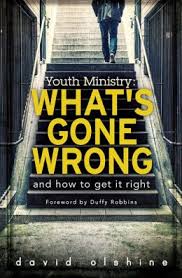 outh Ministry: What’s Gone Wrong and How To Get It Right David Olshine (Abingdon) $18.99 This book was, as they say, “30 years in the making” as the author is a long-term youth worker, a leader beloved by almost everyone in the field. He is the Director of Youth Ministry, Family and Culture at Columbia Internaitonal University in Columbia SC and the author of oodles of books and even more oodles of articles. He is the co-founder of Youth Ministry Coaches and in this book it seems that he is sharing all the basics, updating and refreshing anyone who cares about youth culture, teen ministry, congregational life and healthy mission among and with our youth. Chap Clark notes that “this book brings together the best of what David as taught and led for years.” Duffy Robbins writes in a very moving forward that even though we will continue to make mistakes — as they obviously did in their earliest days, before their really was much of an art or science to this emerging field of youth ministry — “this book will help cultivate cool heads, steady hands, and strong hearts so that the next generation of youth workers is prepared for a lifetime of fruitful ministry.” If you have kids in your church, if you are a parent, teacher, or friend of teeangers, get this book. We have tons of othres, but this is a great starter, a good overview with just the right balance of theory, theology, inspiration, fun and great strategics and objectives. Highly recommended.
outh Ministry: What’s Gone Wrong and How To Get It Right David Olshine (Abingdon) $18.99 This book was, as they say, “30 years in the making” as the author is a long-term youth worker, a leader beloved by almost everyone in the field. He is the Director of Youth Ministry, Family and Culture at Columbia Internaitonal University in Columbia SC and the author of oodles of books and even more oodles of articles. He is the co-founder of Youth Ministry Coaches and in this book it seems that he is sharing all the basics, updating and refreshing anyone who cares about youth culture, teen ministry, congregational life and healthy mission among and with our youth. Chap Clark notes that “this book brings together the best of what David as taught and led for years.” Duffy Robbins writes in a very moving forward that even though we will continue to make mistakes — as they obviously did in their earliest days, before their really was much of an art or science to this emerging field of youth ministry — “this book will help cultivate cool heads, steady hands, and strong hearts so that the next generation of youth workers is prepared for a lifetime of fruitful ministry.” If you have kids in your church, if you are a parent, teacher, or friend of teeangers, get this book. We have tons of othres, but this is a great starter, a good overview with just the right balance of theory, theology, inspiration, fun and great strategics and objectives. Highly recommended.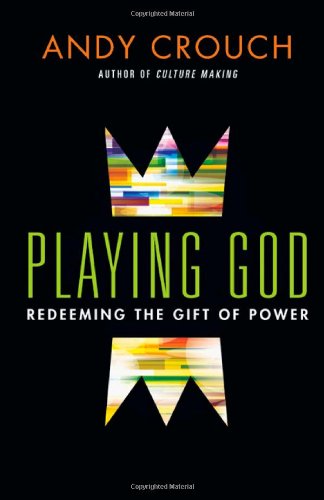

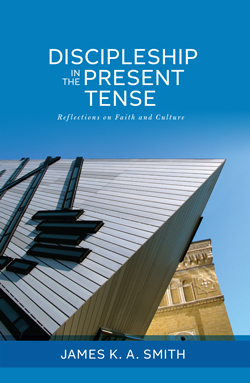 iscipleship in the Present Tense: Reflections on Faith and
iscipleship in the Present Tense: Reflections on Faith and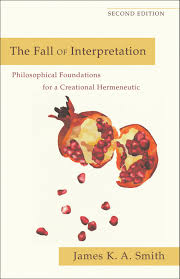 for a Creational Hermeneutic – was a major contribution in the hey-dey of
for a Creational Hermeneutic – was a major contribution in the hey-dey of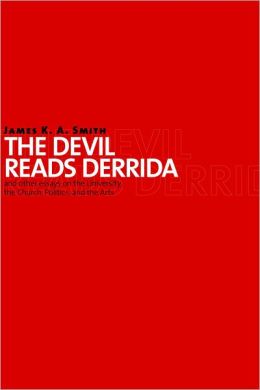 philosopher
philosopher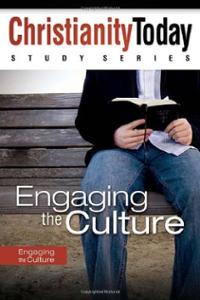 helping
helping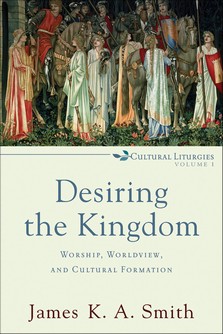
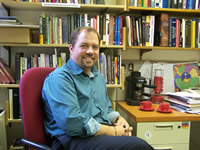 informed and interdisciplinary ways – with feet on the ground, it seems – day by day, about what Kingdom discipleship in this day and age and in this North American society
informed and interdisciplinary ways – with feet on the ground, it seems – day by day, about what Kingdom discipleship in this day and age and in this North American society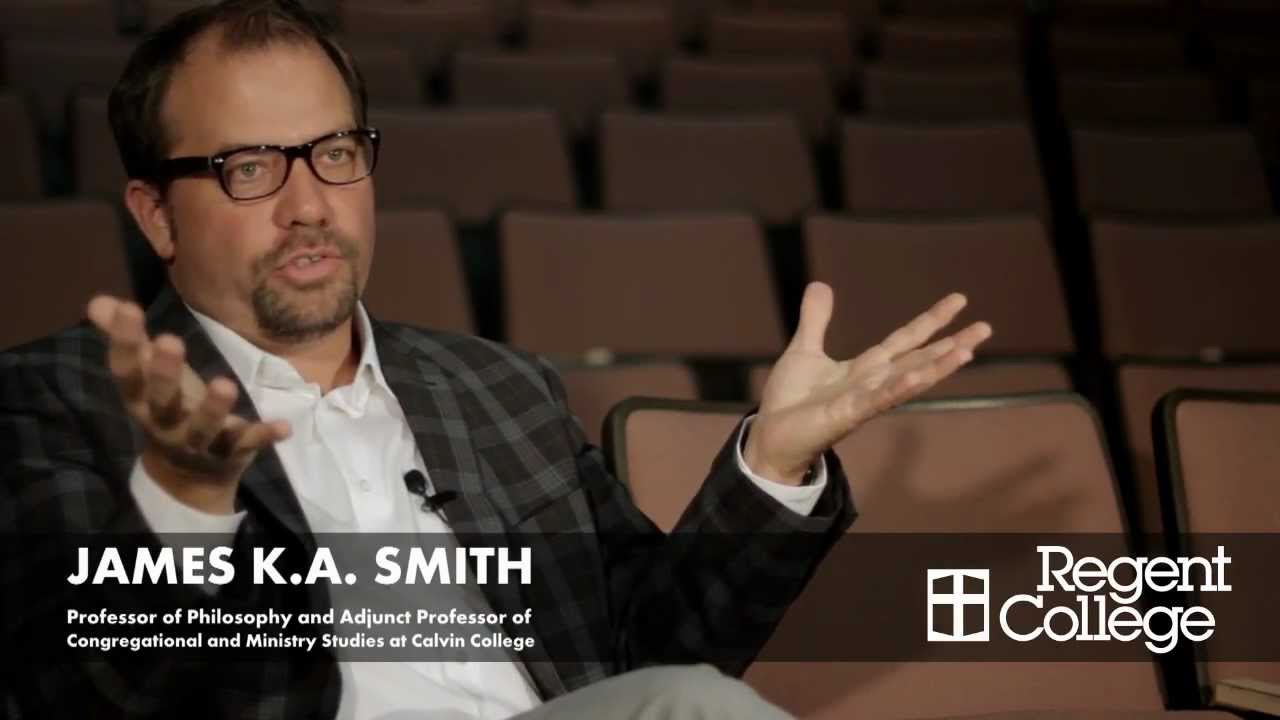 quickly as his other popular books have.
quickly as his other popular books have.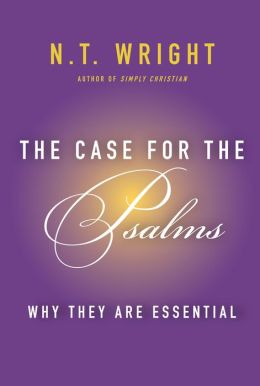


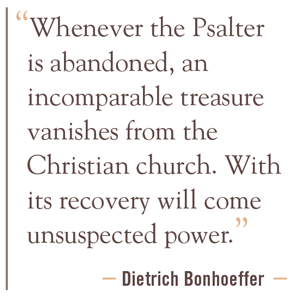
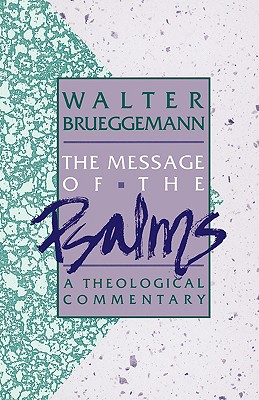 he Message of the Psalms: A Theological Commentary Walter Brueggemann (Augsburg) $18.00 A modern class where the passionate, dense scholar explains the Psalms as those of orientation, disorientation and re-orientation. Remarkable.
he Message of the Psalms: A Theological Commentary Walter Brueggemann (Augsburg) $18.00 A modern class where the passionate, dense scholar explains the Psalms as those of orientation, disorientation and re-orientation. Remarkable. 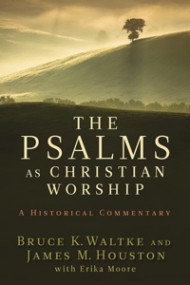 he Psalms as Christian Worship: A Historical Commentary Bruce Waltke and James Houston (Eerdmans) $28.00 A magisterial volume (almost 650 pages) blends a verse-by-verse exposition of select psalms with a history of their interpretation in the church from the time of the apostles to the present. Learned, thoughtful, mature by two esteemed evangelical scholars.
he Psalms as Christian Worship: A Historical Commentary Bruce Waltke and James Houston (Eerdmans) $28.00 A magisterial volume (almost 650 pages) blends a verse-by-verse exposition of select psalms with a history of their interpretation in the church from the time of the apostles to the present. Learned, thoughtful, mature by two esteemed evangelical scholars.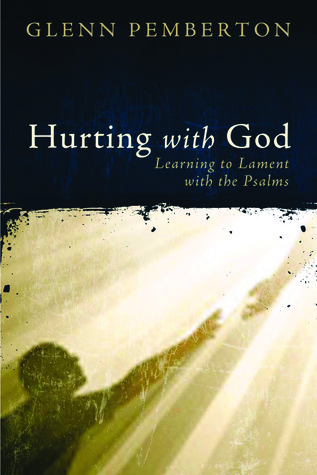 urting with God: Learning to Lament with the Psalms Glenn Pemberton (ACU Press) $19.99 When this book (which Brueggemann calls “a masterful study of the Lament Psalms”) came out we named it one of the books of the year! It offers solid Biblical and historical scholarship, passionate pastoral concerns, and honest, raw, insight. Also includes some concrete proposals on how to use these psalms in the church’s worship.
urting with God: Learning to Lament with the Psalms Glenn Pemberton (ACU Press) $19.99 When this book (which Brueggemann calls “a masterful study of the Lament Psalms”) came out we named it one of the books of the year! It offers solid Biblical and historical scholarship, passionate pastoral concerns, and honest, raw, insight. Also includes some concrete proposals on how to use these psalms in the church’s worship.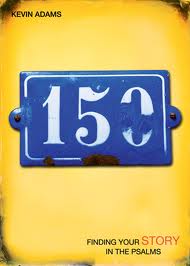 50: Finding Your Story in the Psalms Kevin Adams (Square Inch / Faith Alive) $14.99 There are many lovely devotionals based on the Psalms and this is a wonderful, provocative, moving, work. Lavish blurbs on the back from Haddon Robinson, James K.A. Smith, and Cornelius Plantinga, which speaks to the books elegant and insightful vision. Remarkable.
50: Finding Your Story in the Psalms Kevin Adams (Square Inch / Faith Alive) $14.99 There are many lovely devotionals based on the Psalms and this is a wonderful, provocative, moving, work. Lavish blurbs on the back from Haddon Robinson, James K.A. Smith, and Cornelius Plantinga, which speaks to the books elegant and insightful vision. Remarkable.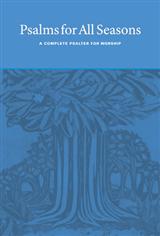 salms for All Seasons: A Complete Psalter for Worship Martin Tel, Joyce Borger, John D. Witvliet (Calvin Institute of Christian Worship / Brazos) $30.00 There are other hymnal-like hardback song books that put the entire Psalter to common tunes, and this is doubtlessly the best. This is an amazing, comprehensive resource, offering an stunning array of indexes so they are easily used in planning worship. It includes musical settings useful for morning or evening devotions as well as responsorial settings for all the psalms in the Revised Common Lectionary and other good features. This is a true treasure trove, a must-have resource, which we are proud to promote.
salms for All Seasons: A Complete Psalter for Worship Martin Tel, Joyce Borger, John D. Witvliet (Calvin Institute of Christian Worship / Brazos) $30.00 There are other hymnal-like hardback song books that put the entire Psalter to common tunes, and this is doubtlessly the best. This is an amazing, comprehensive resource, offering an stunning array of indexes so they are easily used in planning worship. It includes musical settings useful for morning or evening devotions as well as responsorial settings for all the psalms in the Revised Common Lectionary and other good features. This is a true treasure trove, a must-have resource, which we are proud to promote.